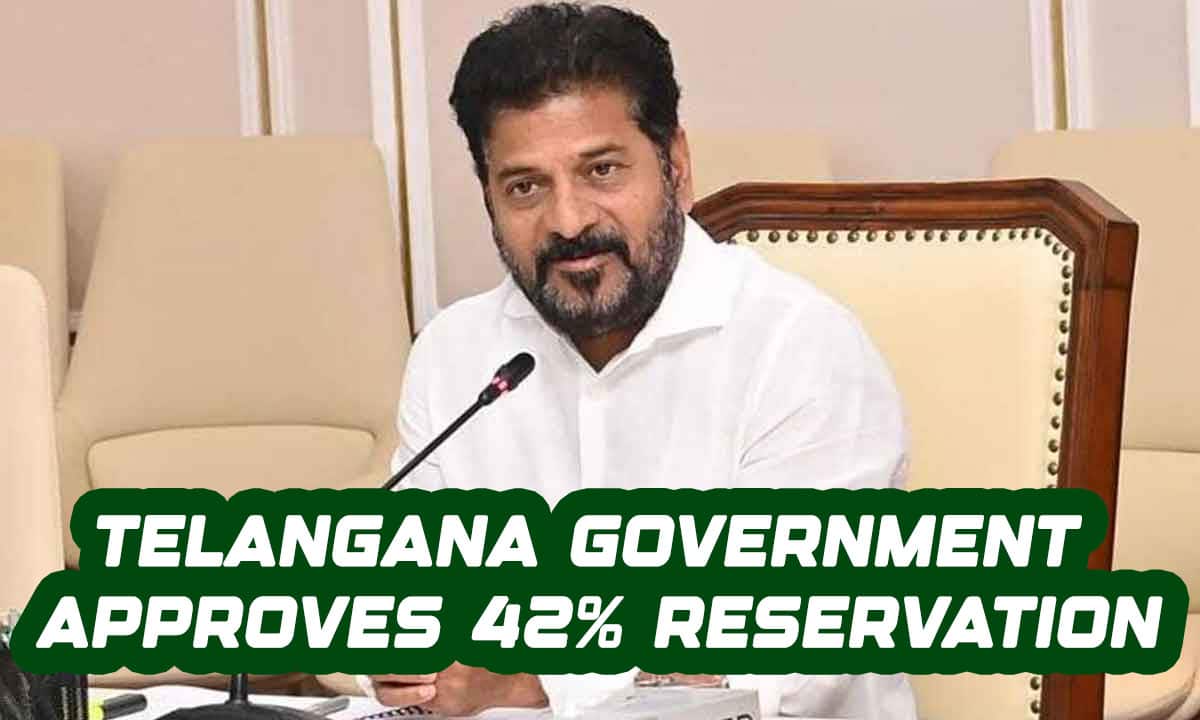Telangana Govt Approves 42% Reservation for Backward Classes in Local Bodies
The Telangana government has formally approved 42% reservation for Backward Classes (BCs) in rural and urban local bodies

Hyderabad: The Telangana government has formally approved 42% reservation for Backward Classes (BCs) in rural and urban local bodies, marking a significant step towards ensuring equitable political representation for marginalized communities in the state.
The decision was issued through G.O.Ms.No.09 by the Backward Classes Welfare (B) Department on Thursday. The move follows a series of socio-economic surveys and expert commission reports that highlighted the lack of adequate political representation for BCs despite their large population share.
According to the Socio-Economic, Educational, Employment, Political, and Caste (SEEECPC) Survey of 2024, conducted and approved by the State Legislature, BCs constitute 56.33% of Telangana’s population but remain politically underrepresented. To address this imbalance, the government appointed a One-Man Commission headed by Sri Busani Venkateshwara Rao, IAS (Retd.), which submitted its findings in March 2025.
The Commission recommended a minimum of 42% reservation in Panchayats and Municipalities, a proposal that was later endorsed unanimously by all political parties in the Assembly through the Telangana Backward Classes (Reservations of Seats in Rural and Urban Local Bodies) Bill, 2025.
Announcing the order, officials stated that the government’s decision reflects its commitment to the constitutional principles of equality, social justice, and inclusive growth. The enhanced quota is expected to empower BCs, strengthen grassroots democracy, and ensure wider participation in decision-making.
The implementation responsibility has been entrusted to the Panchayat Raj & Rural Development Department and the Municipal Administration & Urban Development Department, under the supervision of the Dr. B.R. Ambedkar Telangana Secretariat.
“This order is a landmark in Telangana’s journey towards inclusive governance, ensuring that the largest community bloc gets its rightful share in political representation,” officials said.
